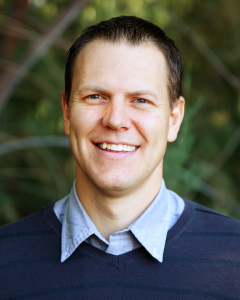 Some parents would rather their kids NOT make mistakes, while other parents look forward to their kids making mistakes. Why would any parent want their kids to make mistakes? Because wise parents know that if kids can make mistakes while the kids are young, and parents can respond to their kids in a certain way when they make those mistakes, then it will drastically increase the odds that their kids will learn several great lessons from that one mistake.
Some parents would rather their kids NOT make mistakes, while other parents look forward to their kids making mistakes. Why would any parent want their kids to make mistakes? Because wise parents know that if kids can make mistakes while the kids are young, and parents can respond to their kids in a certain way when they make those mistakes, then it will drastically increase the odds that their kids will learn several great lessons from that one mistake.
Case and point, my son, Ezra, developed the habit of taking things that didn’t belong to him without permission and without paying for those things. In some dictionaries that would be defined as stealing. In our home, when someone steals something, they get to replace the item plus 3 times the cost of the item. My son went through this process a few times growing up and then, at the age of 9, he got to learn the lesson on a larger scale.
We were traveling back from the grandma’s house for the Christmas holiday and my son was in the back of the van being abnormally quiet. My older daughter said that he was playing on a Nintendo DS underneath his blanket. When we arrived at our destination for the night we asked him about the device and he told us that he “found it.” When asked where, he state, “on the sidewalk.” Upon further questions, it came out that he had taken it from one of the younger siblings at grandma’s house without their knowledge. In other words he had stolen it.
This truly was a sad situation for my son. Following the family rule of replacing the stolen goods, plus 3 times the amount, my wife looked up on eBay how much it would cost to purchase a used Nintendo DS – $40. My son started to fall apart. “Noooooooo!” He cried. Then we got the opportunity to show a lot of love and empathy and help him with all of the emotions that came up for him throughout the whole process.
Upon returning home, over the next several months, my son started to pay off the debt by doing extra chores around the house. Also, as part of the consequence, my son was not able to go onto electronics until after the debt was paid. Since the process was taking so long, my son became more innovative with how he earned the money. He went across the street to an elderly woman and asked if he could take her garbage and recycling bins out to the curb for her and then return them after they had been emptied each week. He worked up his business to a few customers and within 4-5 months he had paid off his debt.
A few years have gone by now since my son has stolen anything. Sometimes he will look at me and say, “Dad, do you know how much money I would have if I had never stolen anything? I’d have hundreds of dollars!”
What a wonderful thing to learn! And how did he learn it? Not by me telling him what he should have learned, but by going through the difficult experience of making things right after he made the mistake. By the way, since this event, Ezra has saved up hundreds of dollars to buy a Nintendo Switch and to take a trip to Costa Rica.
What are some lessons my son learn from this experience? How about responsibility by making sure to take out our neighbor’s garbage bins to the street and back each week? Or that it is easy to earn money to get the things he wants rather than trying to take a short cut by stealing them. He has also started developing a great little work ethic from all the hours of extra chores it took him to earn the money to pay off the debt. And as a bonus, he has learned that he hates being in debt for things. He would rather pay for things upfront rather than having debt looming over his head.
What were some of the steps that my wife and I followed to increase the odds that he would have a positive learning experience from this situation rather than just learning resentment? It started at the beginning with providing the empathy and understanding. Then we helped him with his emotions rather than blaming his unhappiness and his frustrations on his bad behaviors. Starting out with empathy and understanding is pretty much always the first step in helping kids through difficult emotional situations. Then, we handed the problem back and provided support through the process of repairing his mistake.
Even though following these steps might not produce the same outcome for each child, it is a great start in helping a child change a behavior while maintain a good relationship with him.
 Shiloh Lundahl, LCSW, is a child and family therapist in Gilbert and Mesa, Arizona. He is the founder of Parent Arizona and Counseling Services and is part of the Arizona Family Therapy Group.
Shiloh Lundahl, LCSW, is a child and family therapist in Gilbert and Mesa, Arizona. He is the founder of Parent Arizona and Counseling Services and is part of the Arizona Family Therapy Group.
He provides parenting classes using the Love and Logic curriculum, classes for parents of children with ADHD, step-parenting classes, and advanced trainings for foster and adoptive parents. He also provides in-home therapy in Gilbert, Mesa, Queen Creek, San Tan Valley, Chandler, and Tempe, Arizona.
